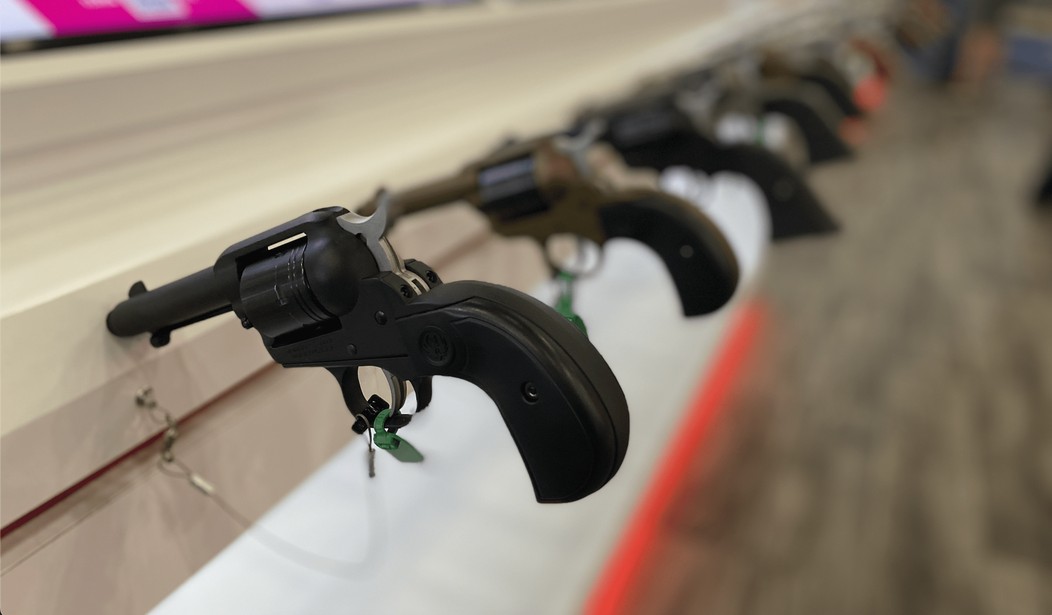Gun control activists are expected to pour a ton of money into the state of Oregon between now and November in the hopes of enshrining several new restrictions on legal gun owners into law through a voter initiative, but the supposed “public safety” measure is drawing increasing opposition from public safety officials across the state, including the Oregon State Sheriffs Association. The OSSA and many individual sheriffs say the proposals, which include a ban on so-called high capacity magazines, a new “permit-to-purchase” scheme, as well as the establishment of a database of all permit holders, are not only aimed in the wrong direction but will end up having a negative impact on violent crime.
One sheriff who’s speaking out says it’s important that voters read the fine print of the ballot initiative and ponder what the unintended consequences will be.
“First and foremost, I hope voters will take the time to educate themselves on the measure and review it line by line,” Umatilla County Sheriff Terry Rowan said. “Measure 110 might not have passed had people studied it. Proponents sold it as breaking the cycle of addiction, but didn’t focus on legalizing the most dangerous drugs, so that addicts would no longer be compelled to seek treatment. Similarly, Measure 114 advocates focus on stopping gun violence, but the public really needs to evaluate its language.”
That’s a pretty smart argument on Rowan’s part, especially since even progressive outlets like Oregon Public Radio can’t avoid the fact that Measure 110 has not delivered the results backers promised voters. Rowan points out that the measure was supposedly going to steer addicts into treatment and recovery instead of the criminal justice system, but that’s simply not happening.
Measure 110 was intended to reverse the harmful effects of the war on drugs, which disproportionately impacted people of color, by putting people from communities most harmed in charge of spending hundreds of millions of tax dollars to expand addiction and recovery services.
But the law isn’t playing out as expected in a variety of ways — just ask Billy Nunemann.
When voters passed Measure 110, they put in place a hotline for people to call if given a ticket for drug possession. By agreeing to a substance use screening, ticketed people could get their $100 fine waived and be referred to treatment services if they wanted.
Nunemann is the Addictions Recovery Program supervisor at Lines for Life, which oversees the hotline. The problem? He doesn’t get a lot of requests for help, and when he does, he may not have the right kind of help to offer.
Police aren’t writing many tickets for drug possession, and as of April, more than a year after the law went into effect, only about 100 people had called the hotline. Fewer than half asked for resources. When they do ask for residential treatment or detox, they are waitlisted, said Nunemann.
In 2021, the first year that Measure 110 was in place, overdose death rates increased by 41%; hardly the results that supporters were predicting. Similarly, Rowan and other Oregon sheriffs say that IP 17, while billed as a public safety measure, will end up hampering law enforcement and will chill the constitutional rights of law-abiding residents.
Measure 114 would require a permit to obtain any firearm, and it would outlaw magazines capable of holding more than 10 rounds. If the measure passes, it would ban some commonly used pump shotguns because their capacity can exceed that limit. Further, Oregon State Police would be required to maintain a searchable public database of all permit applications.
Rowan also said he was convinced the measure is a direct violation of the U.S. Constitution’s Second Amendment.
“It could take a couple of years before the Supreme Court hears a challenge,” Rowan noted. “While waiting, Oregonians would be deprived of their right to self-defense. In the meantime, those with ill intentions are still going to get a gun, ignoring the provisions for background checks and safety training.”
The $65 fee associated with the measure won’t cover even half of the cost of implementing it, Rowan said. The Oregon State Sheriffs’ Association estimated the first year cost at $40 million. The OSSA opposes the measure, and the Oregon Association Chiefs of Police might join them, he commented.
“If a citizen of Pendleton needs a gun for self-defense, who is going to provide the services required by the measure?” Rowan asked. “City police forces lack the time, money and staff. The unfunded, mandated safe handling and storage instruction is an attempt to stall people in purchasing a firearm.”
Rowan said he prefers applying stricter penalties on and enforcement of firearms laws already on the books.
“Again, it’s all in how the picture is painted,” he concluded. “If it’s pitched as stopping gun violence, then voters might buy into it. Opponents must emphasize education on the measure’s impact. High-capacity magazines are common for legitimate purposes. I hope voters don’t repeat the errors of Measure 110, but will realize what else is in it.”
IP 17 also requires all would-be gun owners to go through mandatory classroom and live-fire training before applying for their permit-to-purchase a firearm, which gun rights activists say will lead to a steep decline in gun sales because there’s not enough publicly accessible ranges and firearms trainers to meet the state-imposed demand.
The violent criminals who’ve caused Portland’s homicide rate to jump 200% over the past few years will be utterly untouched by IP 17 and its new mandates. Oh sure, if they’re arrested for a home invasion or carjacking prosecutors might be able to tack on a charge of illegal possession of a firearm or a “large capacity” magazine, but in those the D.A.’s office is likely to use those charges as plea bargain bait; admit to possessing a gun without a permit and they’ll drop the more serious underlying offense.
Given Oregon’s progressive tilt, IP 17 is a real threat to public safety and the constitutional rights of residents, but that doesn’t mean that it’s guaranteed to pass. Not only will law enforcement and 2A groups be campaigning against the measure, Republicans see the potential for a couple of congressional pick-ups in the state this November, and a red wave could end up sweeping the state’s latest gun control initiative into the trash heap of history where it belongs.









Join the conversation as a VIP Member